
Whilst the House of Lords of the United Kingdom is the upper chamber of Parliament and has government ministers, for many centuries it had a judicial function. It functioned as a court of first instance for the trials of peers and for impeachments, and as a court of last resort in the United Kingdom and prior, the Kingdom of Great Britain and the Kingdom of England.
James Brian Edward Hutton, Baron Hutton, PC was a British Lord Chief Justice of Northern Ireland and Lord of Appeal in Ordinary.

In English law, natural justice is technical terminology for the rule against bias and the right to a fair hearing. While the term natural justice is often retained as a general concept, it has largely been replaced and extended by the general "duty to act fairly".
In law, ex parte is a Latin term meaning literally "from/out of the party/faction of", thus signifying "on behalf of (name)". An ex parte decision is one decided by a judge without requiring all of the parties to the dispute to be present. In English law and its derivatives, namely Australian, New Zealand, Canadian, South African, Indian, and U.S. legal doctrines, ex parte means a legal proceeding brought by one party in the absence of and without representation of or notification to the other party.
Nicolas Christopher Henry Browne-Wilkinson, Baron Browne-Wilkinson, PC was a British judge who served as a Lord of Appeal in Ordinary from 1991 to 2000, and Senior Lord of Appeal in Ordinary from 1998 to 2000.
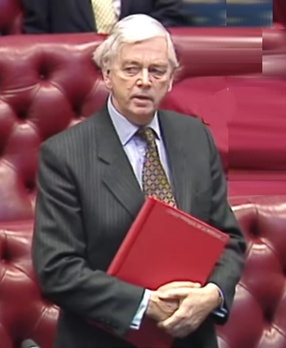
Donald James Nicholls, Baron Nicholls of Birkenhead, was a British barrister who became a Law Lord.

The State Immunity Act 1978 is an Act of the Parliament of the United Kingdom which was passed to implement the European Convention on State Immunity of 1972 into British law. The doctrine of absolute state immunity was changed to one of restricted immunity, whereby a foreign state could be sued in the British courts for some certain activities, usually of a commercial nature.

Leonard Hubert "Lennie" Hoffmann, Baron Hoffmann is a retired senior South African–British judge. He served as a Lord of Appeal in Ordinary from 1995 to 2009.
R v Sussex Justices, ex parte McCarthy is a leading English case on the impartiality and recusal of judges. It is famous as a legal precedent in establishing the principle that the mere appearance of bias is sufficient to overturn a judicial decision. It also brought into common parlance the oft-quoted aphorism "Not only must Justice be done; it must also be seen to be done."
Senior District Judge Timothy Henry Workman is a British retired judge, a long-term stipendiary magistrate who served as Senior District Judge for England and Wales.
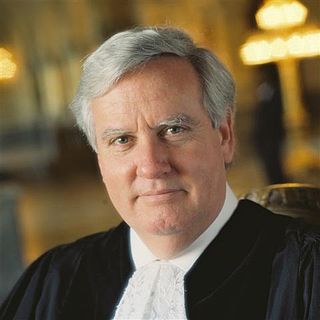
Sir Christopher John Greenwood is Master of Magdalene College, Cambridge and a former British judge at the International Court of Justice. Prior to his election, he was professor of international law at the London School of Economics and a barrister who regularly appeared as counsel before the International Court of Justice, the European Court of Human Rights, the English courts, and other tribunals.

Immunity from prosecution is a doctrine of international law that allows an accused to avoid prosecution for criminal offences. Immunities are of two types. The first is functional immunity, or immunity ratione materiae. This is an immunity granted to people who perform certain functions of state. The second is personal immunity, or immunity ratione personae. This is an immunity granted to certain officials because of the office they hold, rather than in relation to the act they have committed.
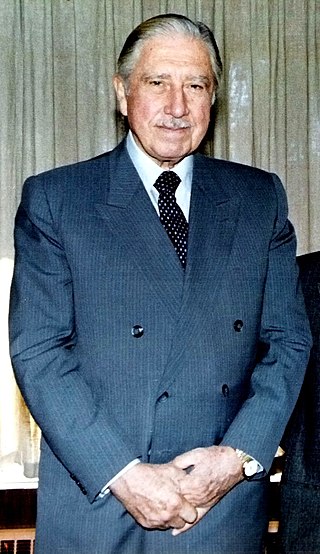
General Augusto Pinochet was indicted for human rights violations committed in his native Chile by Spanish magistrate Baltasar Garzón on 10 October 1998. He was arrested in London six days later and held on house arrest for a year and a half before being released by the British government in March 2000. Authorised to return to Chile, Pinochet was subsequently indicted by judge Juan Guzmán Tapia and charged with several crimes. He died on 10 December 2006 without having been convicted. His arrest in London made the front pages of newspapers worldwide; not only did it involve the head of the military dictatorship that ruled Chile between 1973 and 1990, it marked the first time judges had applied the principle of universal jurisdiction, declaring themselves competent to judge crimes committed in a country by former heads of state, despite the existence of local amnesty laws.
John Stewart Hobhouse, Baron Hobhouse of Woodborough, PC was a British judge and law lord.

United Kingdom administrative law is part of UK constitutional law that is designed through judicial review to hold executive power and public bodies accountable under the law. A person can apply to the High Court to challenge a public body's decision if they have a "sufficient interest", within three months of the grounds of the cause of action becoming known. By contrast, claims against public bodies in tort or contract are usually limited by the Limitation Act 1980 to a period of 6 years.
A full court is a court of law sitting with a greater than normal number of judges. For a court which is usually presided over by one judge, a full court has three or more judges; for a court which, like many appellate courts, normally sits as a bench of three judges, a full court has a bench of five judges.
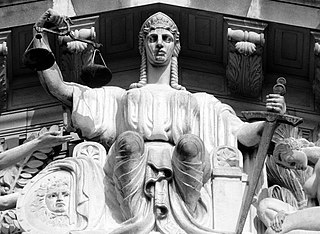
Bias is one of the grounds of judicial review in Singapore administrative law which a person can rely upon to challenge the judgment of a court or tribunal, or a public authority's action or decision. There are three forms of bias, namely, actual, imputed and apparent bias.

In England and Wales, magistrates are trained volunteers, selected from the local community, who deal with a wide range of criminal and civil proceedings. They are also known as Justices of the Peace. In the adult criminal court, magistrates decide on offences which carry up to twelve months in prison, or an unlimited fine. Magistrates also sit in the family court where they help resolve disputes that involve children, and in the youth court which deals with criminal matters involving young people aged 10-17. Established over 650 years ago, the magistracy is a key part of the judiciary of England and Wales, and it is a role underpinned by the principles of 'local justice' and 'justice by one's peers'.
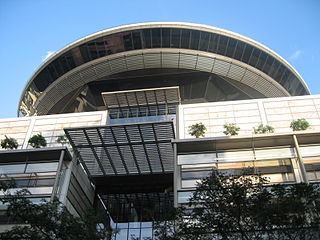
Procedural impropriety in Singapore administrative law is one of the three broad categories of judicial review, the other two being illegality and irrationality. A public authority commits procedural impropriety if it fails to properly observe either statutory procedural requirements, or common law rules of natural justice and fairness.
Metropolitan Properties Co (FCG) Ltd v Lannon was a United Kingdom constitutional law case concerning natural justice.










